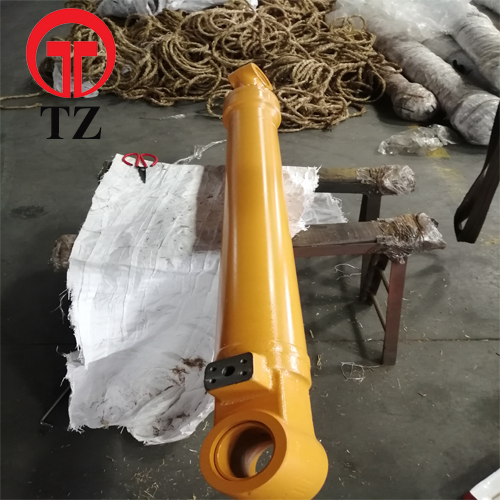Regardless of whether you work with fixed plant or mobile hydraulics, it is essential to adhere to a regular schedule of preventative maintenance in order to ensure the proper functioning of your equipment. Are you fully cognizant of all the dangers related to hydraulic cylinder failure?
The repercussions of hydraulic equipment that is not properly maintained extend beyond the cylinder alone. Indeed, the consequences can extend extensively to the machine, system, or even the entire business, resulting in costly repairs or potentially life-threatening circumstances.
We are leading cylinder manufacturer in China. According to our working experiences for many years, In this article, we will examine the risks of hydraulic cylinder failure and provide guidance on avoiding significant problems for both you and your business.

Efficiency of the cylindre hydraulique d'excavatrice is lost
The running cost of your operation increases due to a gradual loss of efficiency caused by poorly performing cylinders. As hydraulic cylinders fail, they encounter issues like internal leakage and heightened friction between the reciprocating components such as piston rods and bores. In order to maintain the cylinder’s operation, operators occasionally increase system pressures to offset this inefficiency. Consequently, this puts added stress on the rest of the hydraulic system, increasing the risk of premature failure. The outcome of this is a larger decrease in power, resulting in an increase in your energy bill. The larger the operation, this issue becomes amplified exponentially. In a business with numerous cylinders, both dozens and even hundreds, the combined cost of inadequately maintained actuators can reach thousands of dollars per month. Following a proactive maintenance schedule has a practical cost benefit.
Hydraulic cylinder component failure risk
The supporting components are forced to work harder due to issues such as internal leakage, increased friction, or worn tolerances in the excavator hydraulic cylinders. The following are the effects that are included:
Heat that is increased can cause seals to wear out or fail.
Piston rod scoring caused by excessive friction.
Piston seals and glands can fracture due to excessive pressure.
Cylinder movement that is inconsistent results in the bending of piston rods and the scoring of piston rods and barrels.
Mounting points and bearings fail due to excessive vibration.
Barrel deformation caused by excessive internal pressure.
Increased pump wear is a result of high volumetric fluid demand.
Increased wear and failure of hydraulic motors are a result of loss of efficiency.
Higher probability of injury caused by hydraulic fluid leaks
Not only components are at risk of damage when excavator hydraulic cylinder fail. In high-risk environments like heavy industry, the presence of slick surfaces can pose a risk of injury, and the leakage of hydraulic fluid can create hazardous conditions for workers. Poorly maintained cylinders and hydraulic equipment pose a safety risk which may result in injuries, fatalities, and compensation claims against the responsible organization.
Health problems may arise as a result of being exposed to hydraulic fluid
Inhaling, ingesting, or accidentally injecting hydraulic fluids can result in various health consequences, ranging from skin irritation to gangrene and, in extreme cases, death. The ingestion of hydraulic fluid is especially dangerous as it can possibly cause intestinal bleeding. Accidental injection happens when there is a hydraulic fluid leak under high pressure, resulting in the rapid injection of fluid into the skin. Small hydraulic leaks in hydraulic hoses are occasionally imperceptible and touching them can result in immediate injection of hydraulic fluid, which is under 2000 psi of pressure, into the skin. Without treatment, the affected area will become infected and gangrene will develop.
Fire hazard risk is heightened
Hydraulic fluid, being a liquid based on petroleum, can be a potential fire hazard, particularly if exposed to elevated temperatures. Par ailleurs, if fluid leaks occur, there is a possibility for the fluid to be vaporized. This vaporization could then generate a mist that is capable of becoming flammable in the air. Under certain conditions, this flammable mist could result in an explosive scenario. A serious accident can be caused by just an ignition source. It is crucial to ensure the proper maintenance and good condition of hydraulic cylinders, tuyaux, and equipment, particularly in environments that are likely to have heat and flame exposure.
Risk of contamination in the environment has been heightened
Hydraulic hose or pipe leaks can easily contaminate the ground or bodies of water by depositing fluids and chemicals. If hydraulic fluid is able to enter the groundwater, the potential impact on the local ecology and residents can be catastrophic. A small amount of fluid can contaminate a large amount of groundwater, and these chemicals can remain there for many years. To prevent ecological damage, it is important to keep hydraulic cylinders in good working condition.
